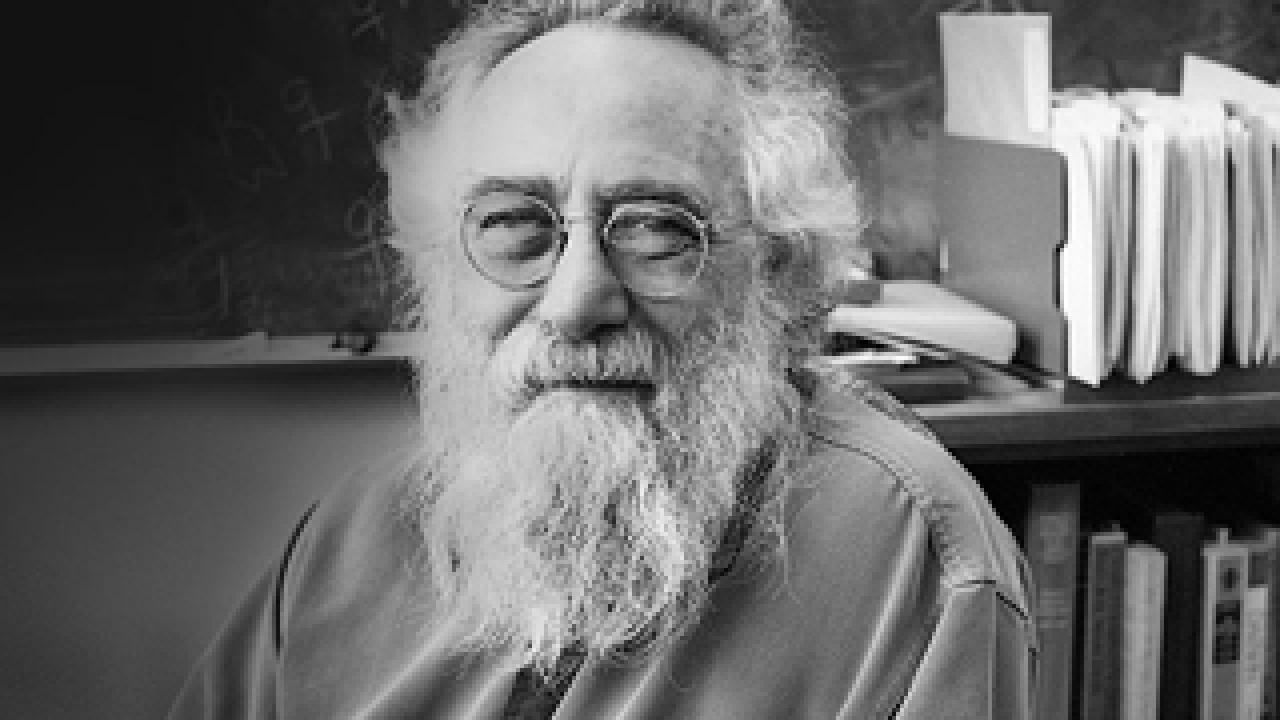The office of Michael Turelli, distinguished professor in the UC Davis Department of Evolution and Ecology, is lined with books written by the world’s preeminent evolutionary geneticists. Most are Turelli’s friends and colleagues. Picking up and flipping the pages of one after another, he tells the story of evolutionary genetics and his 35-year career at UC Davis.
“For me, the history of science is a history of personal interactions,” Turelli said. “I’ve gotten where I am by meeting people. From the whole field of population genetics, I’m at most 1 degree removed.”
His combination of smart connections, rampant curiosity and hard work — including research that could help stop the spread of dengue fever — has not gone unnoticed by his campus colleagues. The Davis Division of the Academic Senate has selected Turelli for the 2012 Faculty Research Lecture Award.
The award is the senate’s highest accolade. It recognizes outstanding scholarly research and comes with a $1,000 cash prize. The recipient delivers the annual Faculty Research Lecture. Turelli’s talk, “How good luck, great collaborators, pretty mathematics and a maternally inherited bacterium (Wolbachia) may stop the spread of dengue fever,” is scheduled for Wednesday, June 6, at 4:10 p.m. in 1322 Storer Hall on the UC Davis campus. It is free and open to the public.
“[Professor Turelli] is one of the few and highly valued theoreticians in biology whose work is aimed directly at understanding the natural world,” wrote UC Davis evolution and ecology professor David Begun in his nomination letter. “Given his extraordinary international stature, it seems only fitting that we honor him with the highest campus award recognizing his contributions.”
Making a difference
From an early age, Turelli knew that whatever he did in life, he wanted it to make a difference. When he realized, as an undergraduate mathematics student at UC Riverside in the 1970s, that some of his classmates were as good as or better than him at math, he decided to leave the field after getting his bachelor’s degree.
“It became clear I was not going to make a significant contribution in math,” Turelli said.
He began to think that the way to save the world was by applying math to biology, and he shifted his focus to mathematical ecology — “What? You’re trying to save endangered numbers?“ his uncle joked at the time — and to genetics, earning his doctorate in biomathematics at the University of Washington in 1977. That same year, he joined the UC Davis faculty.
“Davis has been profoundly supportive of me,” Turelli said. “I’ve had great collaborators and good luck in picking and solving problems.”
Turelli’s current work with an international research team introducing a bacterium into mosquitoes that transmit dengue fever could help solve an enormous global problem: “It seems quite probable it could stop the spread of dengue fever,” he said.
Curious by nature
In his lecture, Turelli will describe how, in the mid-1980s, he and Ary Hoffmann, now at the University of Melbourne, Australia, set out to understand how flies adapt in nature. They did an apples-to-oranges comparison: mating flies found on oranges in Southern California with flies found on apples in Northern California. When the males from Southern California were mated to the females from Northern California, all of the flies’ embryos died. However, no such death occurred when Northern males were mated to Southern females. The reason, they discovered, was the bacterial symbiont Wolbachia.
Continued research, in which Turelli has played a leading part, has found that Wolbachia can spread rapidly in nature and may be the key to stopping dengue fever, a potentially fatal condition caused by a virus spread by the mosquito Aedes aegypti. More than 2.5 billion people — over 40 percent of the world’s population — are at risk from dengue. The illness is most prevalent in the tropics and subtropics, and is an increasing problem in northern Australia.
Wolbachia is transmitted by female mosquitoes to their offspring. Infected female mosquitoes produce slightly fewer eggs than uninfected females. But when an infected male mates with an uninfected female, none of her eggs hatch. So once the infection is common, uninfected females produce fewer and fewer offspring.
Turelli and others studying Wolbachia expect that as it spreads from mosquito generation to generation, the transmission of dengue should come to an end.
Turelli said he is looking forward to sharing the Wolbachia story during his public lecture.
“It’ s a great example of being curious, wanting to understand something in nature and discovering that this understanding has important practical applications,” he said.
Media Resources
Kat Kerlin, Research news (emphasis on environmental sciences), 530-750-9195, kekerlin@ucdavis.edu
Michael Turelli, Evolution and Ecology, (530) 752-6233, mturelli@ucdavis.edu
